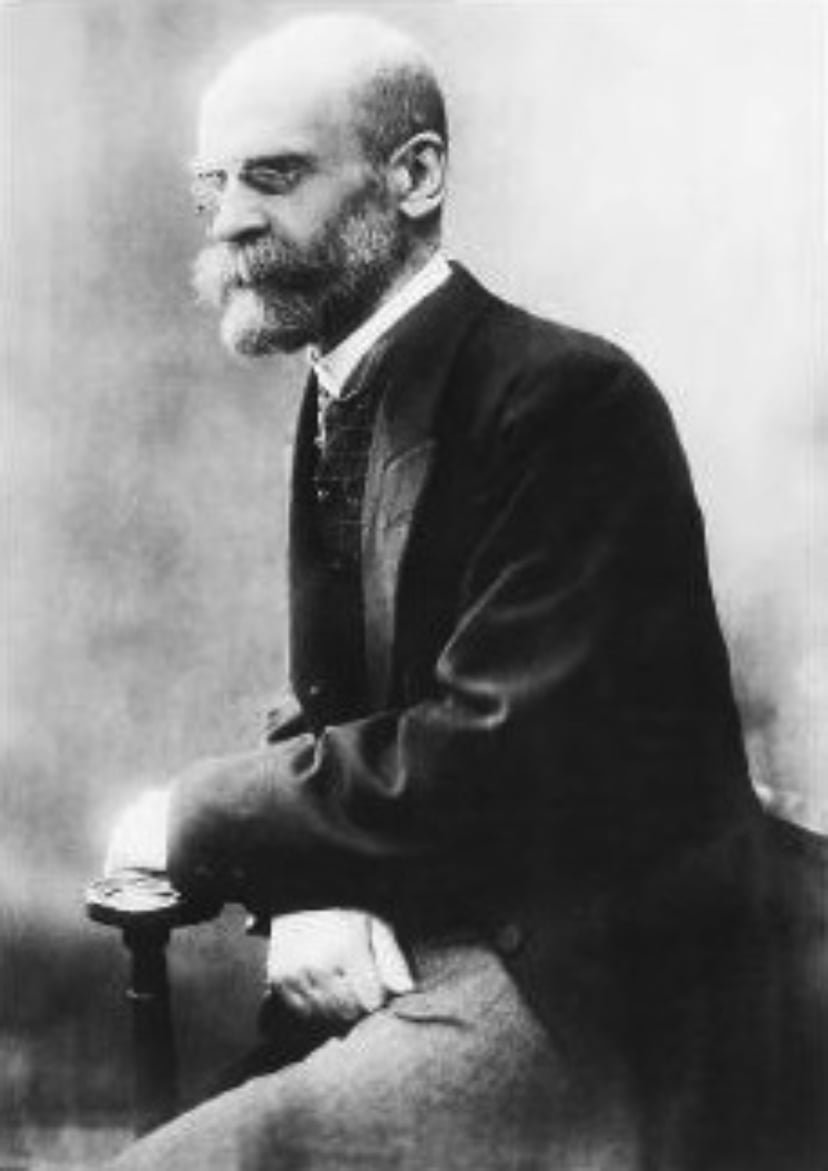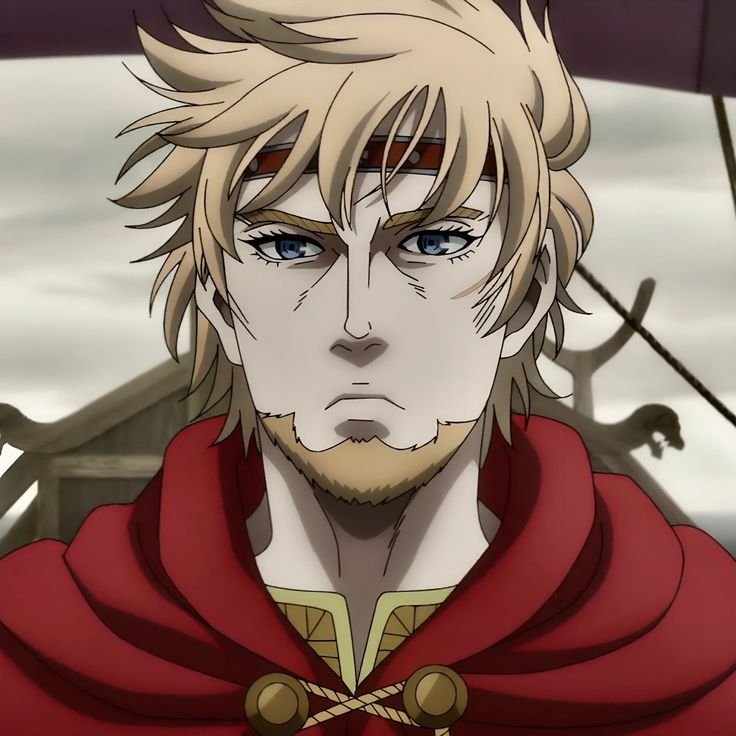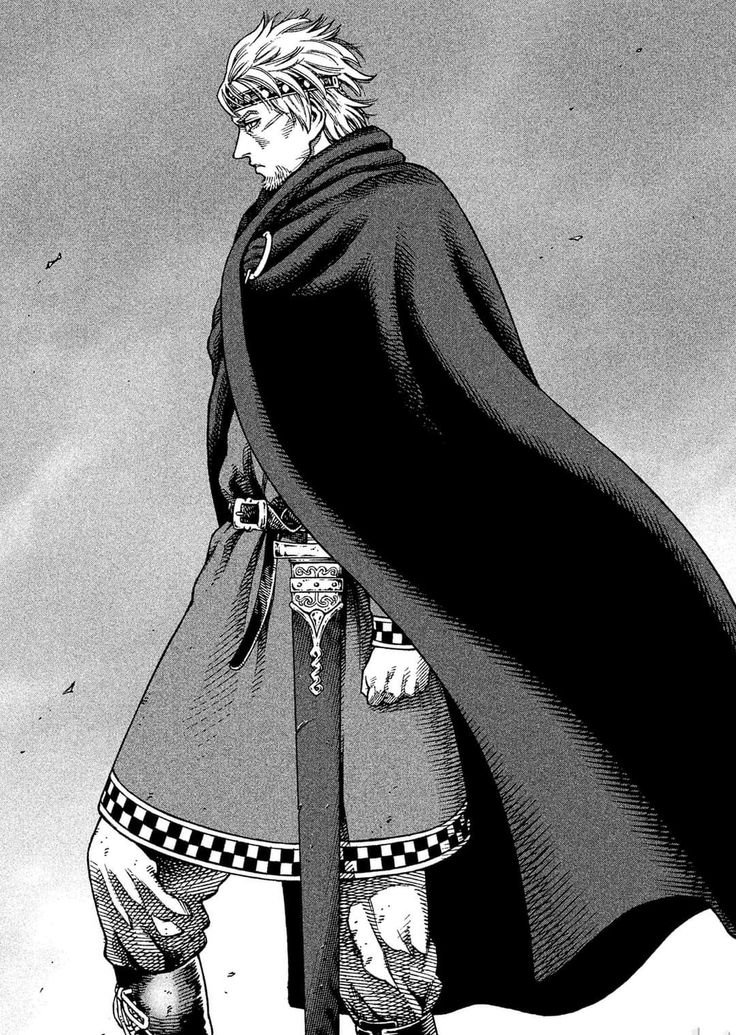

Canute

|
クヌート
|
|
|---|---|
| Personal Description | |
| Nihongo | クヌート |
| Vital Information | |
| Gender | Male |
| Age | Born 12 July 996 |
| Status | Alive |
| Eyes | Blue |
| Hair | Blond |
| Height | 170 cm (5’7”) |
| Family | Sweyn † (father) |
| Occupation | King of Denmark and England Prince (formerly) |
| First Appearance | |
| Manga Debut | Chapter 21 |
| Anime Debut | Episode 9 |
| Portrayal | |
| Japanese Voice | Kenshō Ono |
| English Voice | Jessie James Grelle |
- Japanese Name: クヌート (Kunūto)
- Titles: King of Denmark and England
- Franchise:Vinland Saga
- Family: Father, King Sweyn; Brother, King Harald
|
Émile Durkheim
|
|
|---|---|
| Born |
David Émile Durkheim
15 April 1858 Épinal, France
|
| Died | 15 November 1917(aged 59)
Paris,France
|
| Nationality | French |
| Alma mater | École Normale Supérieure |
| Known for | Sacred–profane dichotomy Collective consciousness Social fact Social integration Anomie Collective effervescence |
| Scientific career | |
| Fields | Philosophy, sociology, education, anthropology, religious studies |
| Institutions | University of Paris, University of Bordeaux |
| Influences | Immanuel Kant, René Descartes,Plato, Herbert Spencer,Aristotle, Montesquieu, Jean-Jacques Rousseau, Auguste Comte. William James, John Dewey, Fustel de Coulanges, Jean-Marie Guyau, Charles Bernard Renouvier, John Stuart Mill |
| Influenced | Marcel Mauss,Claude Lévi-Strauss, Talcott Parsons, Maurice Halbwachs, Jonathan Haidt, Lucien Lévy-Bruhl,Bronisław Malinowski, Fernand Braudel, Pierre Bourdieu, Charles Taylor, Henri Bergson, Emmanuel Levinas, Steven Lukes, Alfred Radcliffe-Brown, E. E. Evans-Pritchard, Mary Douglas, Paul Fauconnet, Robert N. Bellah, Ziya Gökalp, David Bloor, Randall Collins, Neil Smelser[1] |
Background and Role
Canute, known as the King of Denmark and England, is a character who undergoes significant growth throughout Vinland Saga, transitioning from a meek and insecure prince to a powerful and strategic ruler. Born into Danish royalty, Canute initially appears ill-suited for leadership due to his shy demeanor and reluctance to engage in battle. However, under the guidance of his loyal guardian Ragnar, and later the Viking leader Askeladd, Canute gradually transforms, embracing his heritage and claiming his place on the throne.
Following the death of his father Sweyn, Canute claims the English crown, soon after securing Denmark upon the death of his brother Harald. His vision for a unified kingdom leads him to employ both political cunning and military strength, balancing compassion with pragmatism to achieve his goals. Unlike his earlier, timid self, the seasoned King Canute wields an unyielding ambition and resolve, willing to make sacrifices to realize his dream of a paradise free from strife.

With a calm yet piercing gaze, Canute exudes a quiet determination that belies his initial gentle demeanor, reflecting the inner strength and transformation of a young prince destined for greatness.
Transformation and Themes
Canute’s journey is marked by themes of destiny, power, and the moral sacrifices required to govern effectively. His transformation is sparked by witnessing the ruthless world around him, particularly Askeladd’s violent actions and philosophical beliefs. This shift in perspective prompts Canute to embrace a harsher worldview, one where a ruler must sometimes forsake personal beliefs for the sake of the greater good. Canute’s vision of “paradise” drives him, but he soon learns that creating such a world demands hard choices and a willingness to confront even those he once relied upon.
Relationships
Ragnar
As Canute’s guardian, Ragnar is a father figure who protects him from harm, sheltering him to the point of stunting his development as a leader. Ragnar’s death becomes a pivotal moment for Canute, marking the end of his innocence and sparking his transformation into a hardened ruler.
Askeladd
Although initially antagonistic toward Canute, Askeladd ultimately becomes a mentor who catalyzes his evolution. Askeladd’s philosophy and actions influence Canute’s understanding of strength, leadership, and sacrifice.
Thorfinn
While not directly connected, Thorfinn’s journey often intersects with Canute’s rise to power. Both characters undergo profound personal transformations, and Canute’s growth into a formidable ruler influences Thorfinn’s own understanding of strength and purpose.
Key Events
- Claiming the Throne: After the deaths of his father and brother, Canute takes the throne of England and Denmark, asserting his authority and beginning his campaign for unification.
- Shift in Personality: Following Ragnar’s death and Askeladd’s influence, Canute sheds his timid nature and assumes a ruthless, commanding presence, embracing the responsibilities and harsh realities of kingship.
- Building a Paradise: Canute’s vision for a peaceful kingdom drives many of his decisions, even as he learns that establishing such a world may demand moral compromises.
Trivia and Insights
- Historical Basis: Canute is inspired by the real historical figure, King Cnut the Great, who ruled over the North Sea Empire, including Denmark, England, Norway, and parts of Sweden.
- Philosophical Influence: Askeladd’s philosophy on strength and leadership deeply affects Canute, who adopts a more Machiavellian approach to rulership as a result.
- Iconic Transformation: Canute’s evolution from a shy prince into a formidable king is one ofVinland Saga’s most striking character arcs, demonstrating the transformative power of ambition and necessity in the face of hardship.
Canute’s journey from reluctant prince to ambitious king showcases a complex blend of compassion, ambition, and ruthless determination. His desire to create a “paradise” sets him on a path that shapes not only his kingdom but also the lives of those around him, cementing him as one of the most compelling figures in Vinland Saga.